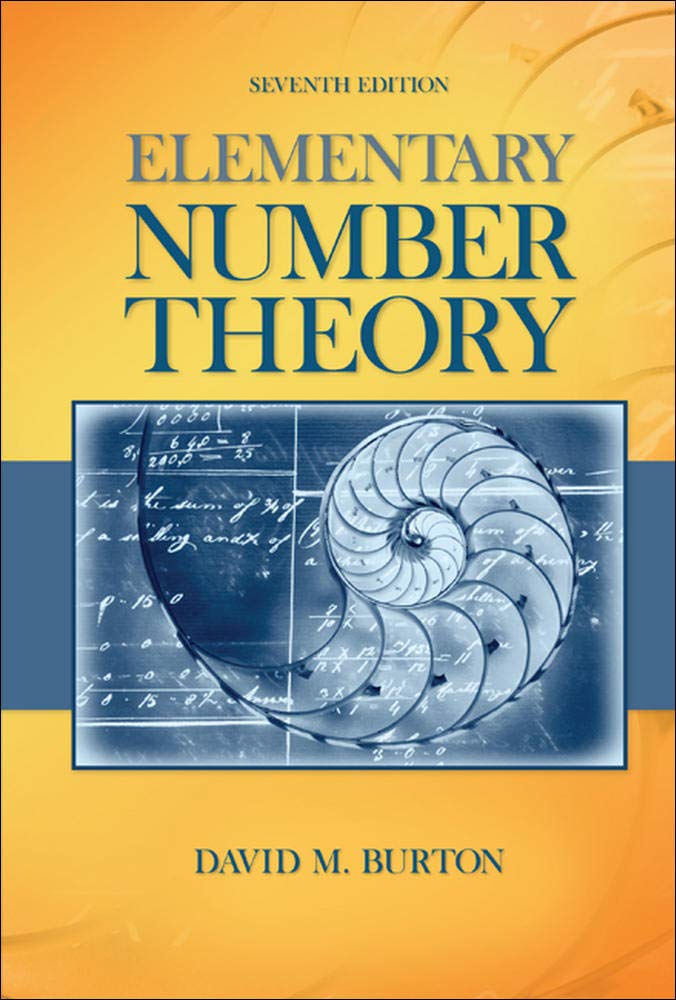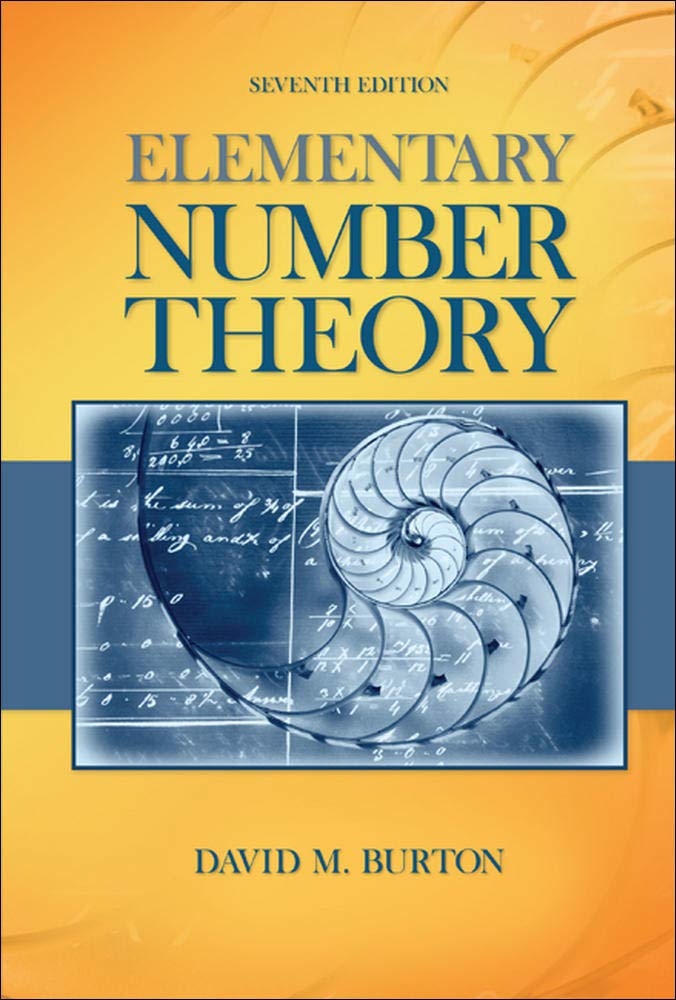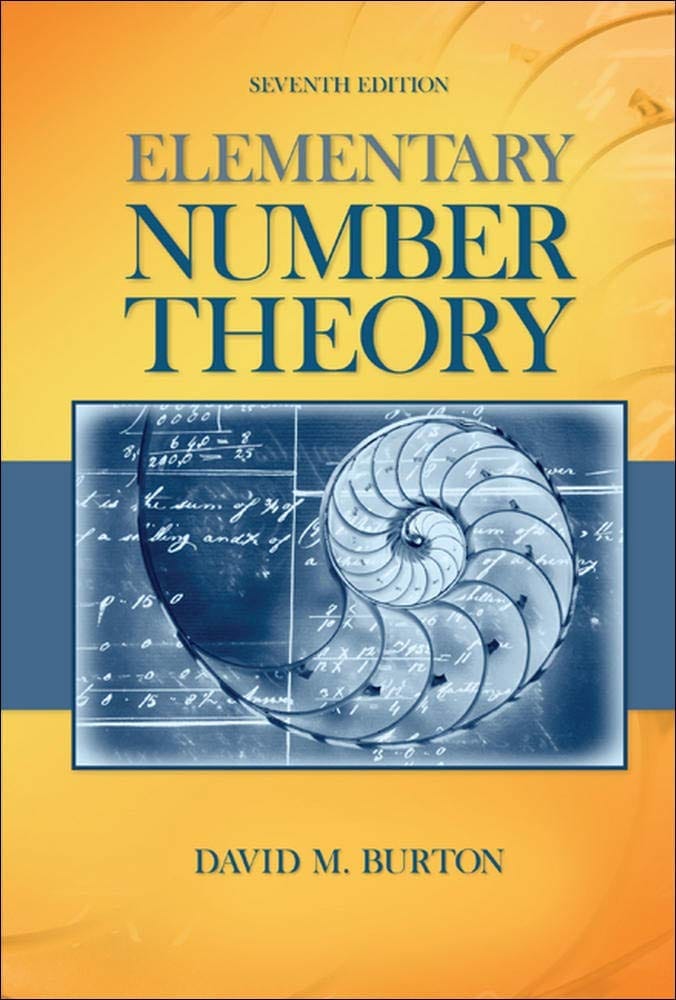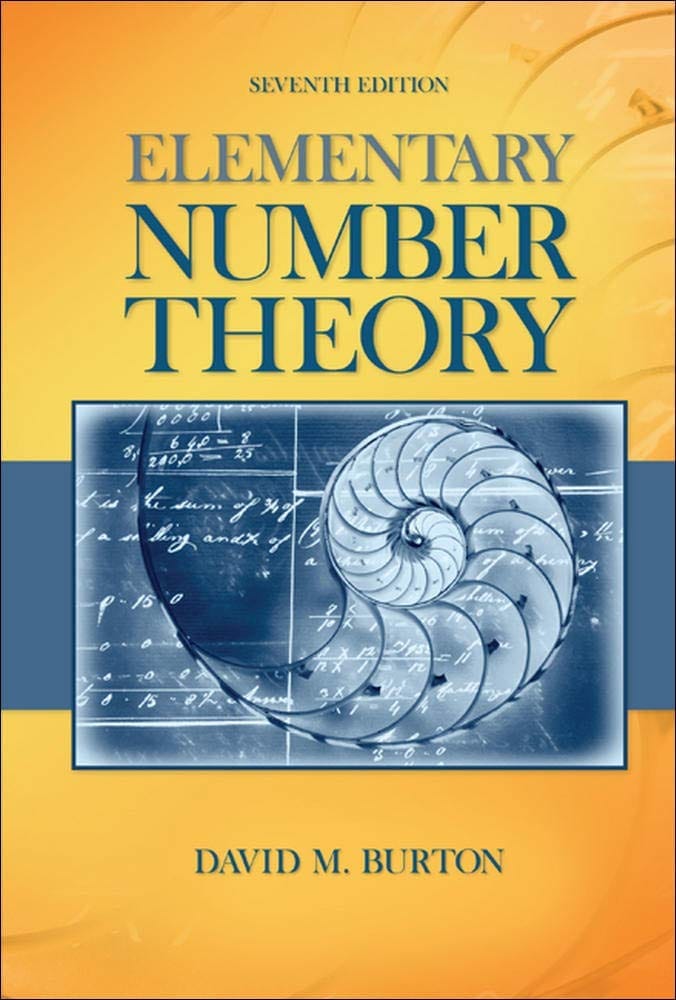
Elementary Number Theory Problems 3.2 Solution (David M. Burton's 7th Edition) - Q12
Assuming that $p_{n}$ is the $n$th prime number, prove:(a) $p_{n} > 2n - 1$ for $n \geq 5$.(b) None of the integers $P_{n} = p_{1}p_{2} \cdots p_{n} + 1$ is a perfect square. (c) The sum $\frac{1}{p_{1}} + \frac{1}{p_{2}} + \cdots + \frac{1}{p_{n}}$ is never an integer.
Background
All theorems, corollaries, and definitions listed in the book's order:

I will only use theorems or facts that are proved before this question. So you will not see that I quote theorems or facts from the later chapters.
Question
Assuming that $p_{n}$ is the $n$th prime number, establish each of the following statements:
(a) $p_{n} > 2n - 1$ for $n \geq 5$.
(b) None of the integers $P_{n} = p_{1}p_{2} \cdots p_{n} + 1$ is a perfect square.
[Hint: Each $P_{n}$ is of the form $4k + 3$ for $n \gt 1$.]
(c) The sum
is never an integer.
Solution
(a)
Base Case:
For $n = 5$, we have $p_{5} = 11 \gt 2 \times 5 - 1 = 9$.
Induction Hypothesis:
Assume $p_{k} > 2k - 1$ for some integer $k$ where $k \geq 5$.
The rest is for Premium Members only
SubscribeAlready have an account? Log in

